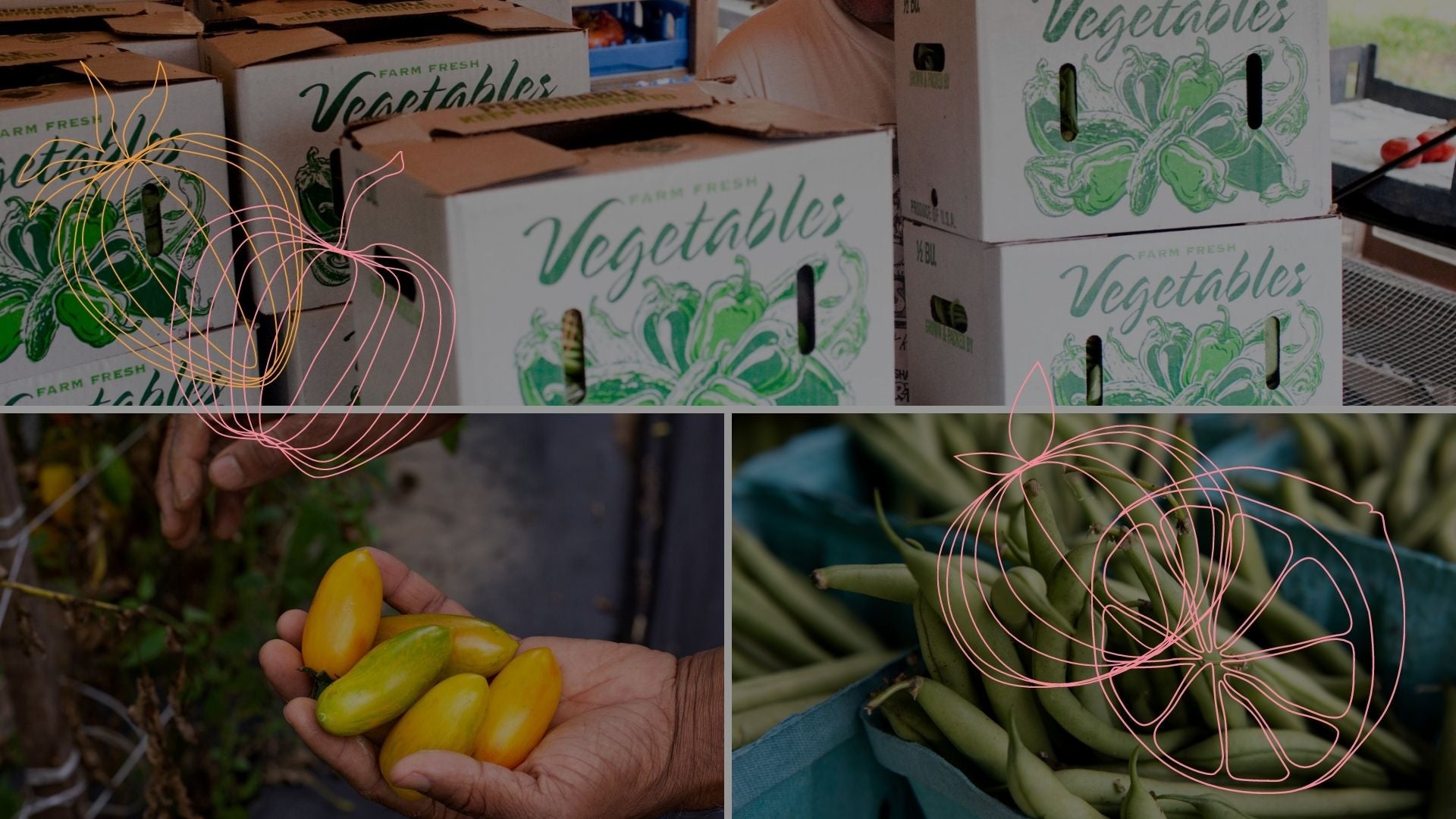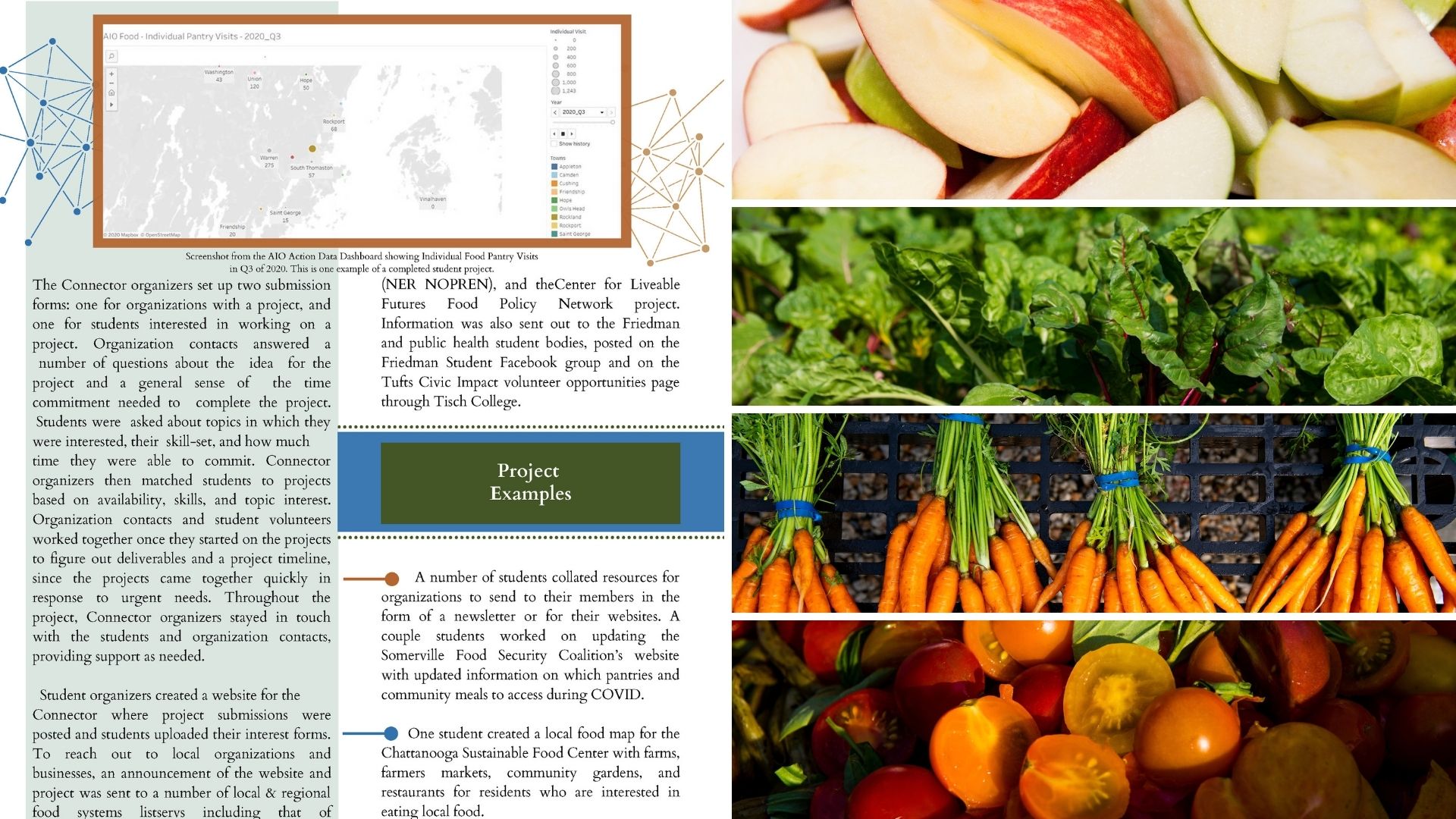Stepping Up to Serve
Our school's mission statement is "Trusted Science. Future Leaders. Real-World Impact," but the Friedman community doesn't wait until the future to lead, we're doing it right now. We have a growing Service Scholars program that saw generous support from a new scholarship last year by Ted and Margery Mayer, and most of our students count public service as a key component of their academic and career goals. This year, students stepped up in a big way to help local food systems fight food insecurity during one of the largest supply chain disruptions in recent history by creating the The Friedman Food Systems COVID-19 Connector. Friedman's own New Entry Sustainable Farming Project got to work distributing fresh produce directly to the public after receiving a USDA grant working with Boston Area Gleaners.

Connector Project Submissions
Students Worked on Connector Projects
Bags of Fresh Produce Delivered for Senior Shares
Boxes Delivered for the Farm-to-Familes Food Box Program
Connecting Food Systems With Student Expertise
Text and research for this story is excerpted from the Brief titled "Local Food Systems Response to COVID: Building Better Beyond" by current student Allie Wainer (MS, Food and Nutrition Policy and Programs/MA, Urban and Environmental Planning) and alumna Elise Mitchell, N20 (MS/MPH, Food and Nutrition Policy and Programs)
The Friedman Food Systems COVID-19 Connector (“Connector”) came out of discussions that took place in a course at the Friedman school, Food Law and Regulation. When classes stopped meeting in person due to the COVID-19 pandemic, the professor of this course, Nicole Negowetti, J.D., quickly adjusted the curriculum to consider the topics on the syllabus in tandem with the on-going pandemic. A few students from the course decided they wanted to act upon ideas that emerged from class discussions, thus seeding the idea for a platform to match food systems organizations with students who could provide technical assistance in response to the pandemic. Almost all of the organizations involved in the Connector are local food systems organizations meaning that they do their work within one city or region of the country. The goal of the Connector was primarily to help organizations respond to the COVID-19 crisis, which had and continues to have a big impact on the food system.
“The competence, enthusiasm, and reliability of the student interns was excellent and their contributions to the overall project were significant and valuable. We’d be happy to participate in any future opportunities” - Project Partner

The goal of the Connector was primarily to help organizations respond to the COVID-19 crisis, which had and continues to have a big impact on the food system. Secondarily, the Connector was launched to provide students with the opportunity to give back to a community in a time of great need and uncertainty. The platform received 40 project submissions from April to June 2020, 26 of which were pursued as projects by students through the Connector. Thirty-six students worked on these projects, which included graduate students in the Friedman school, as well as undergraduate and graduate students in other programs at Tufts. The projects fell into two broad categories: food policy and food access. Food policy projects focused on farm to institution, child nutrition, essential workers in the food system, and food waste. Food security projects included support for food pantries, community gardens, local food markets, and farmers market logistics.
Moving forward, the Connector will be housed under the Service Scholars program at the Friedman School, an organization for service minded students to work on service projects, volunteer, build relationships, and cultivate service opportunities for the entire student body.
Organizations will not be limited to submitting projects that support COVID relief/response work, and can submit short or long term projects on which students can work. Connector organizer, Allie Wainer, will be involved in getting the platform up and running through the Service Scholars website and getting systems in place to match Service Scholar students with organizations based on availability, skills, and interests. Service Scholars has a curriculum committee that is working to build more service opportunities into the Friedman curriculum.
The Friedman School's Service Scholar program continues to expand thanks to the hard work of our scholars and the financial support of donors. Learn more about the program and watch for even more activity in 2021!
